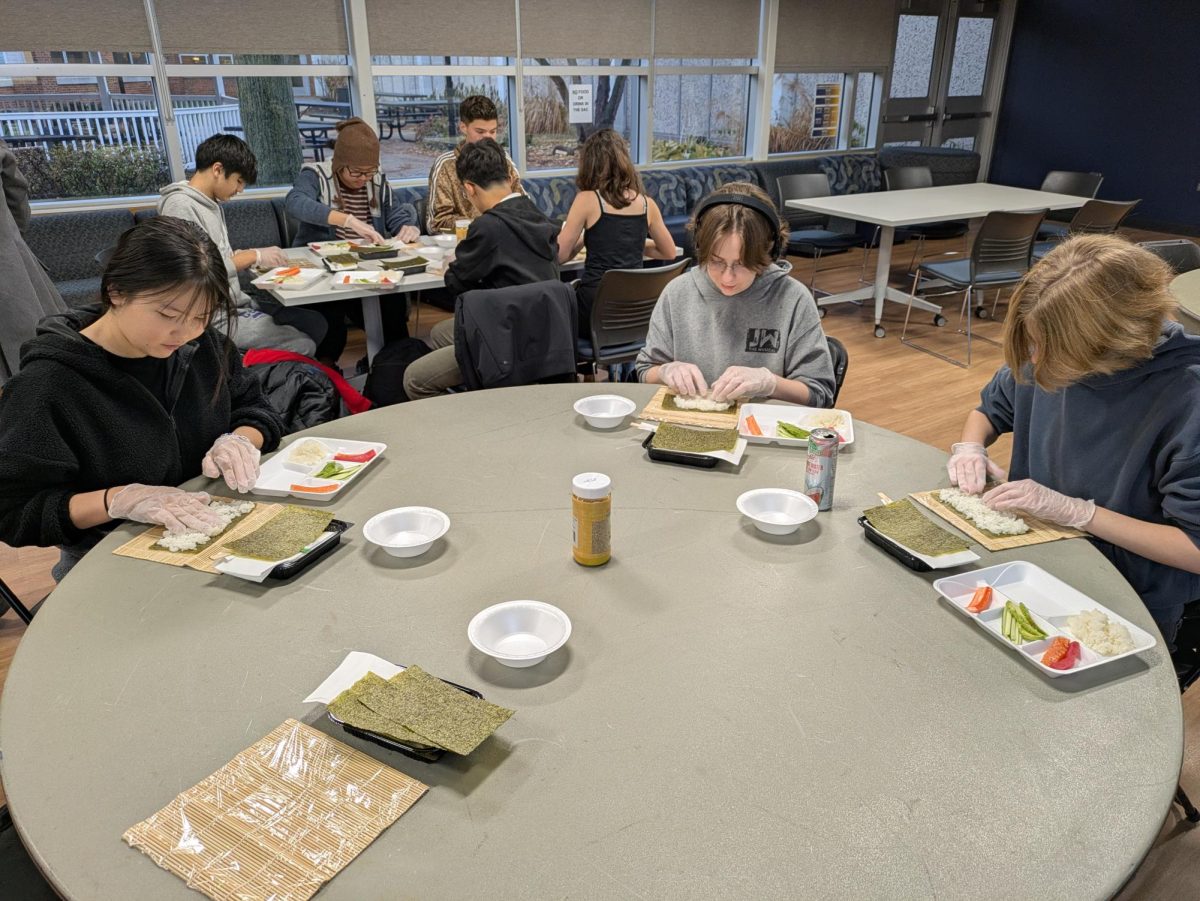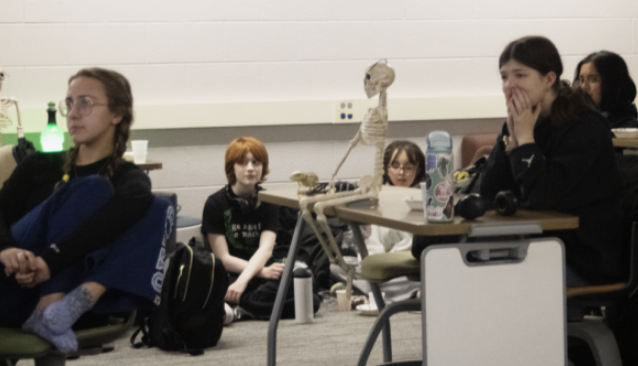High school can be scary. Navigating a new building, learning how to balance life and school with an increased workload, and making friends in a crowd of almost 3,000 students are all challenges that incoming Freshmen face. Through the Peer Group Program, seniors ease the Freshmen transition into high school, while gaining valuable life skills themselves, Joy Cooper, English Teacher and Peer Group Coordinator, said.
Founded in 1974, the program is one of the longest peer-to-peer learning programs in the country, created to help students build mutual support, Cooper said. The Peer Group Program has evolved since its founding to better accommodate the transition from 8th grade into high school, Cooper said.
Peer Group takes place during half of Freshman SRT where leaders planned activities to help freshmen get to know each other and acclimate to high school, Cooper said.
“Our hope is to try and break down some of the barriers that [might have] existed in middle school,” Cooper said. “[We want to] help kids find a group of friends and a senior that they can look up to [who] can advocate for them.”
In order to become a Peer Group Leader, there is an extensive vetting process, Cooper said. At the beginning of the year, an email is sent out to juniors to ask if they are interested in becoming a Peer Group Leader. Then, a year-long process including staff reviews, written applications, and individual and group interviews narrows down the pool of applicants, Cooper added.
“There are questions about leadership [and] a scenario based question [in the application],” Cooper said. “We rank their applications on how thoroughly and thoughtfully they’ve answered questions.”
Leaders start the year with activities designed to help freshmen get to know each other, and later, as the semester progresses, the activities focus on developing relationships, senior Abigail Naughton, Peer Group Leader, said.
“I really like [Peer Group], especially now that [I have] established a relationship with [my] freshmen,” Naughton said. “It’s nice [when] I see them in the hallway and they come up to me and [we] start talking.”
Peer Group Leaders can also benefit by building skills in communication, lesson planning, and cooperation, Cooper said. Most participating seniors say that they are better communicators and better understand how to interact with other people, by the time the year ends, Cooper said.
During the first half of the Peer Group block, Peer Group Leaders meet with their advisor and talk about the activities they did, what went well, and what could have gone better, Cooper said. They have to think about what their freshmen need next and how they can best help them learn and grow, Cooper said.
“[Peer Group Leaders] help kids understand the culture of high school and what it means to be a productive member of South,” Cooper said. “[They are] caring older kids who want to make sure [the freshmen] have a good experience in high school.”
As for the Freshmen, Peer Group allows them to meet new people and learn more about the school, freshman Pat Vongchana said.
“The Freshmen [are] able to talk to [the] seniors about school [and get] advice on classes and how to handle them,” Vongchana said. “It’s a good program because it connects new kids [to seniors] with [more] experience in the school.”








